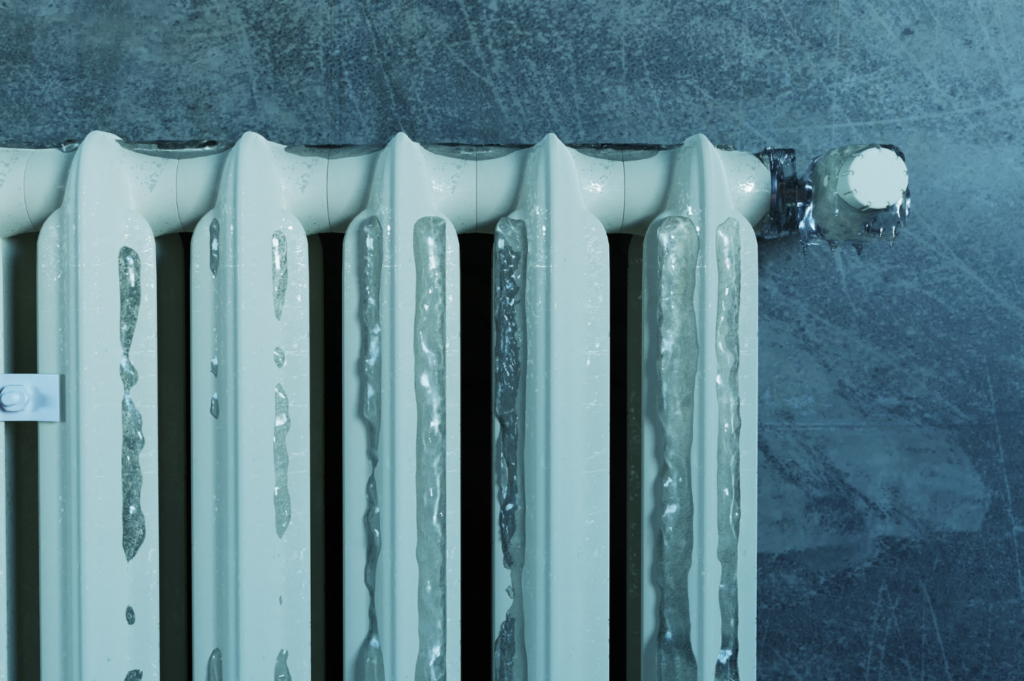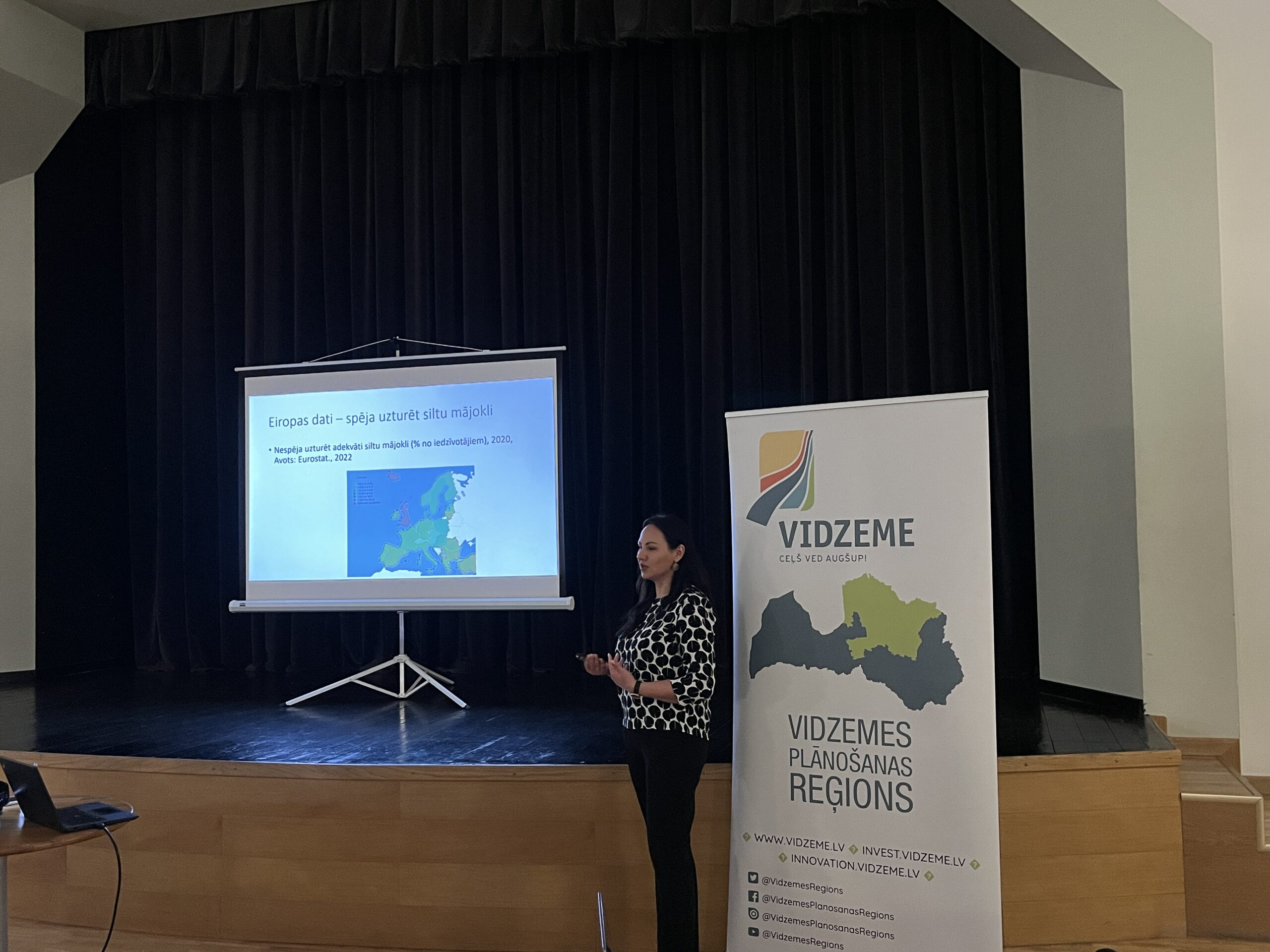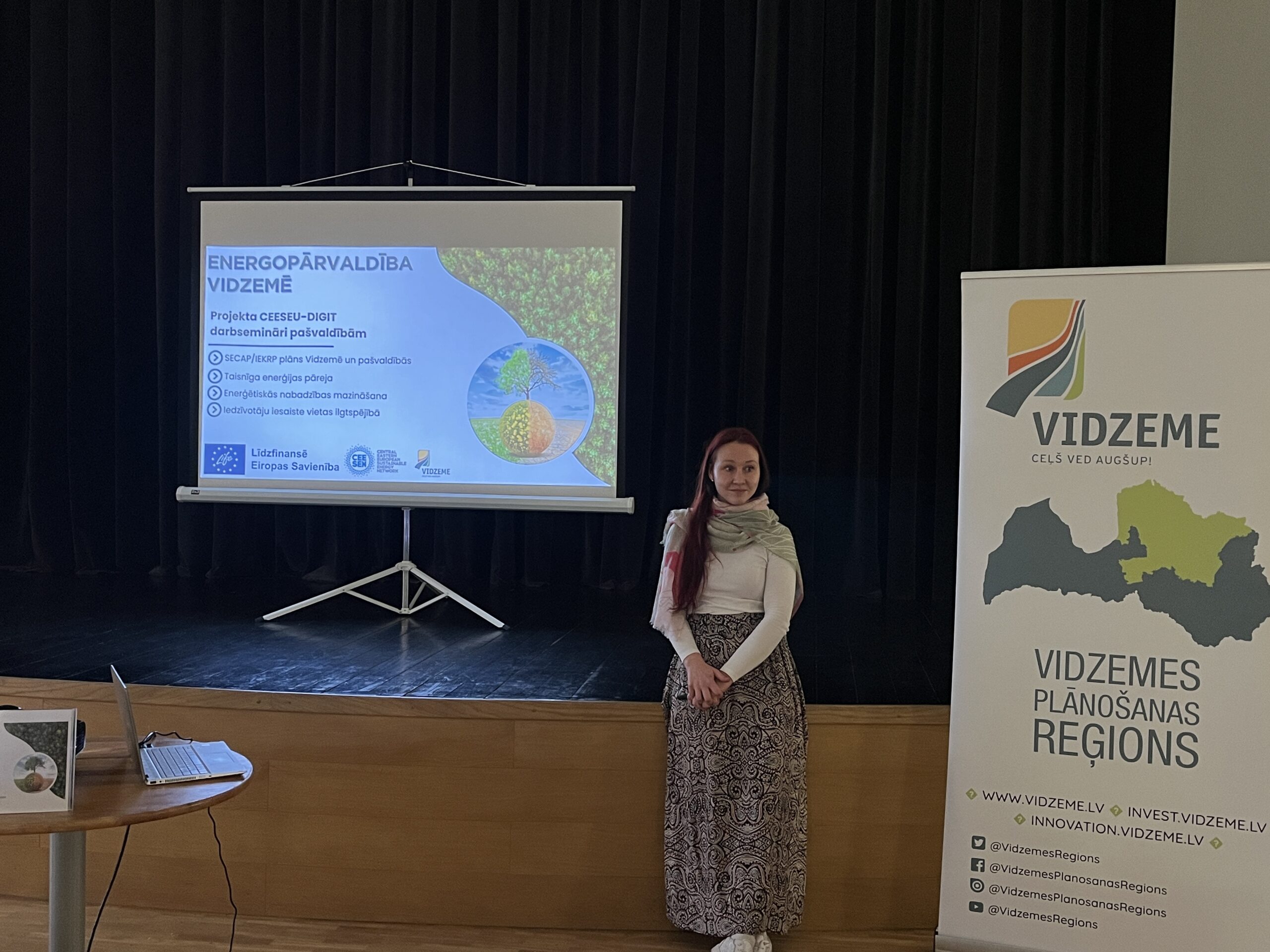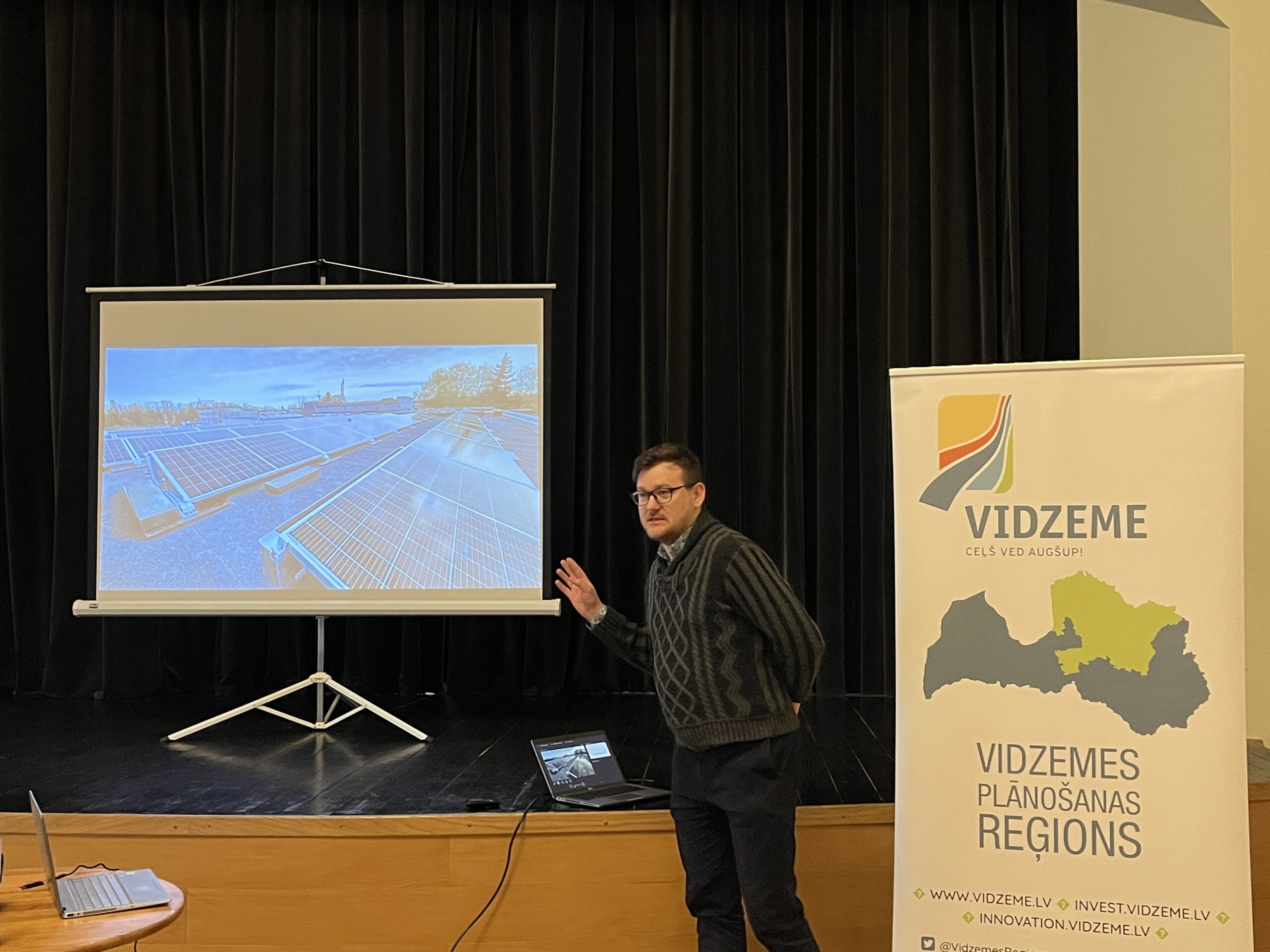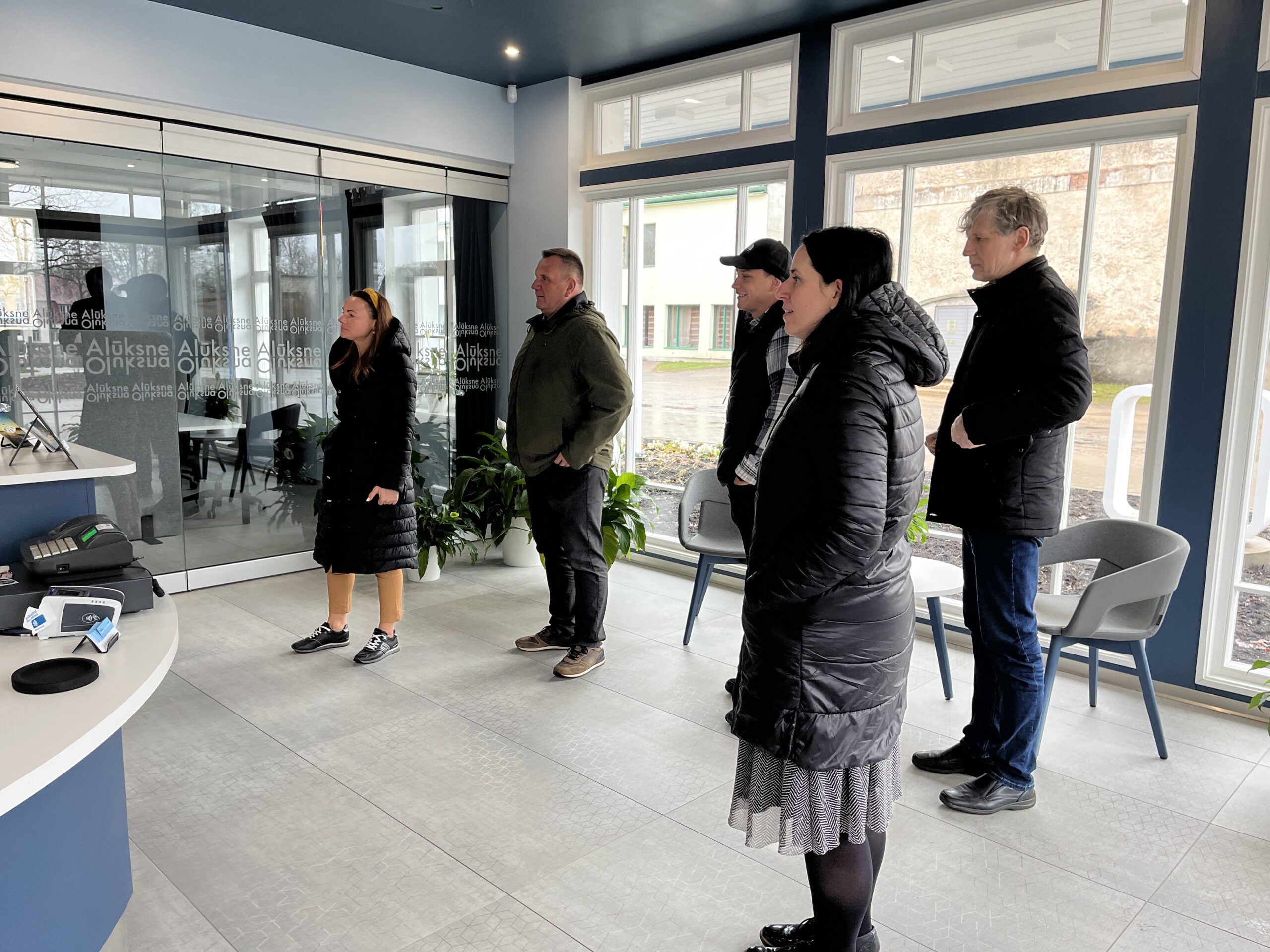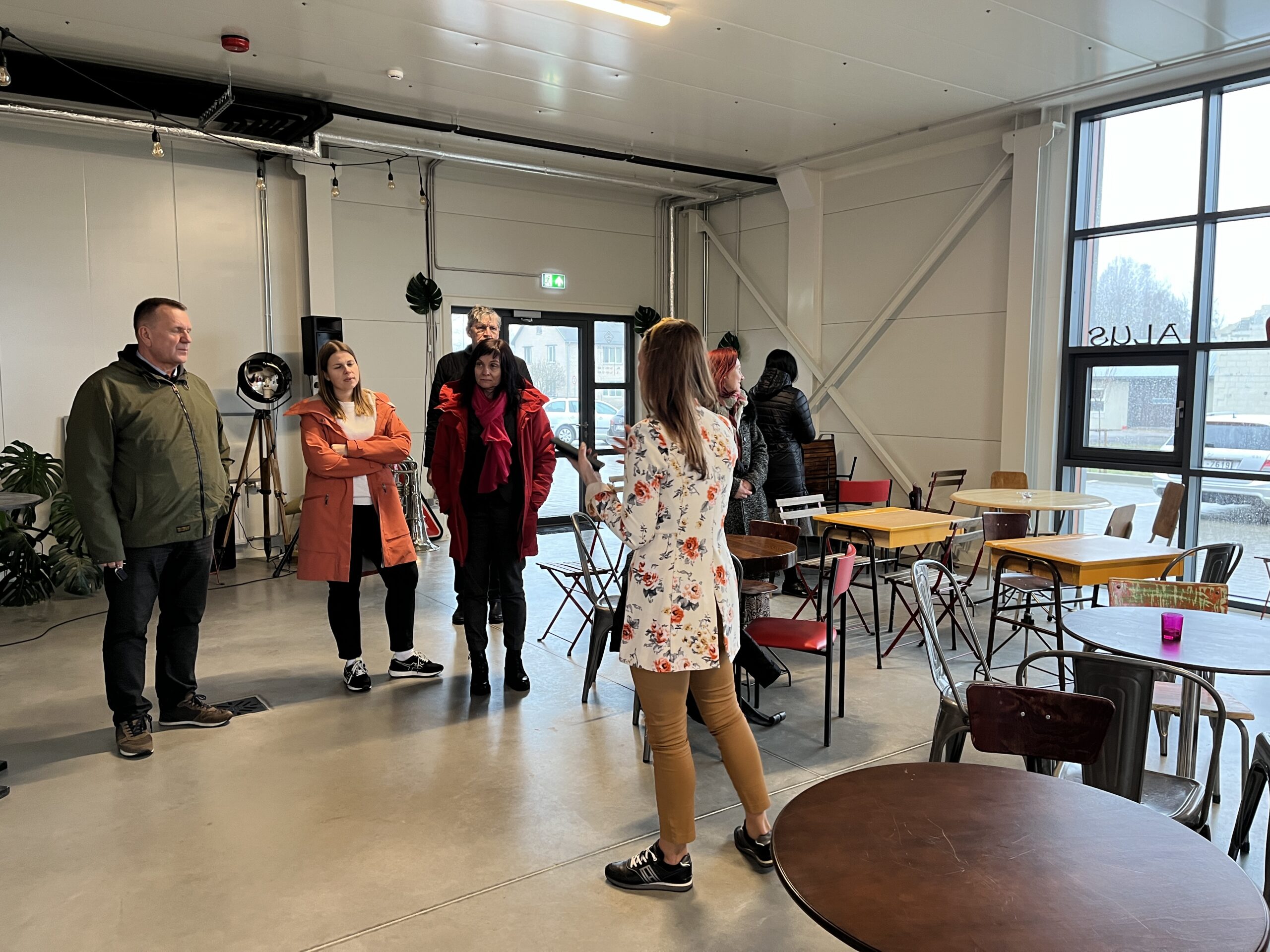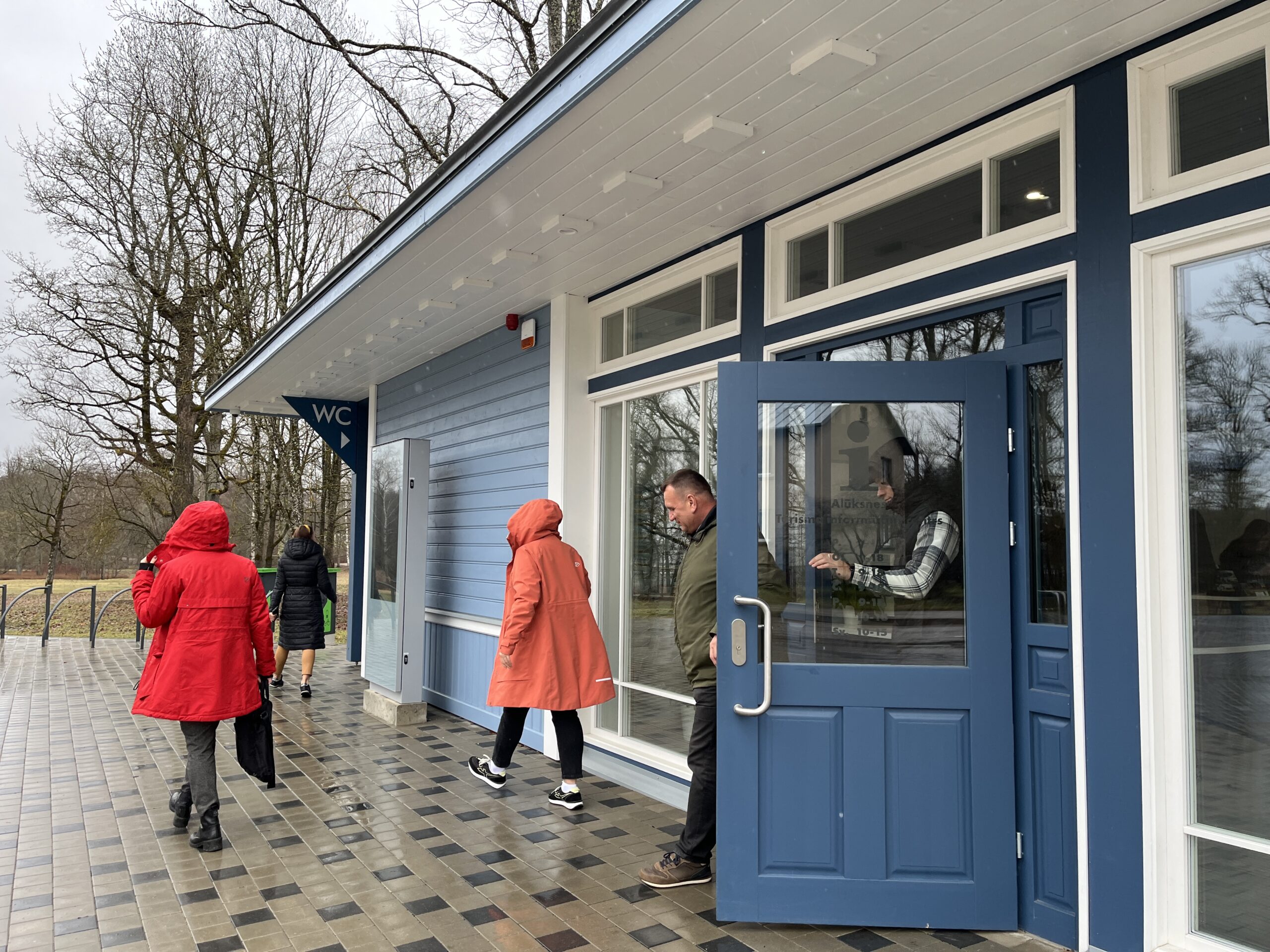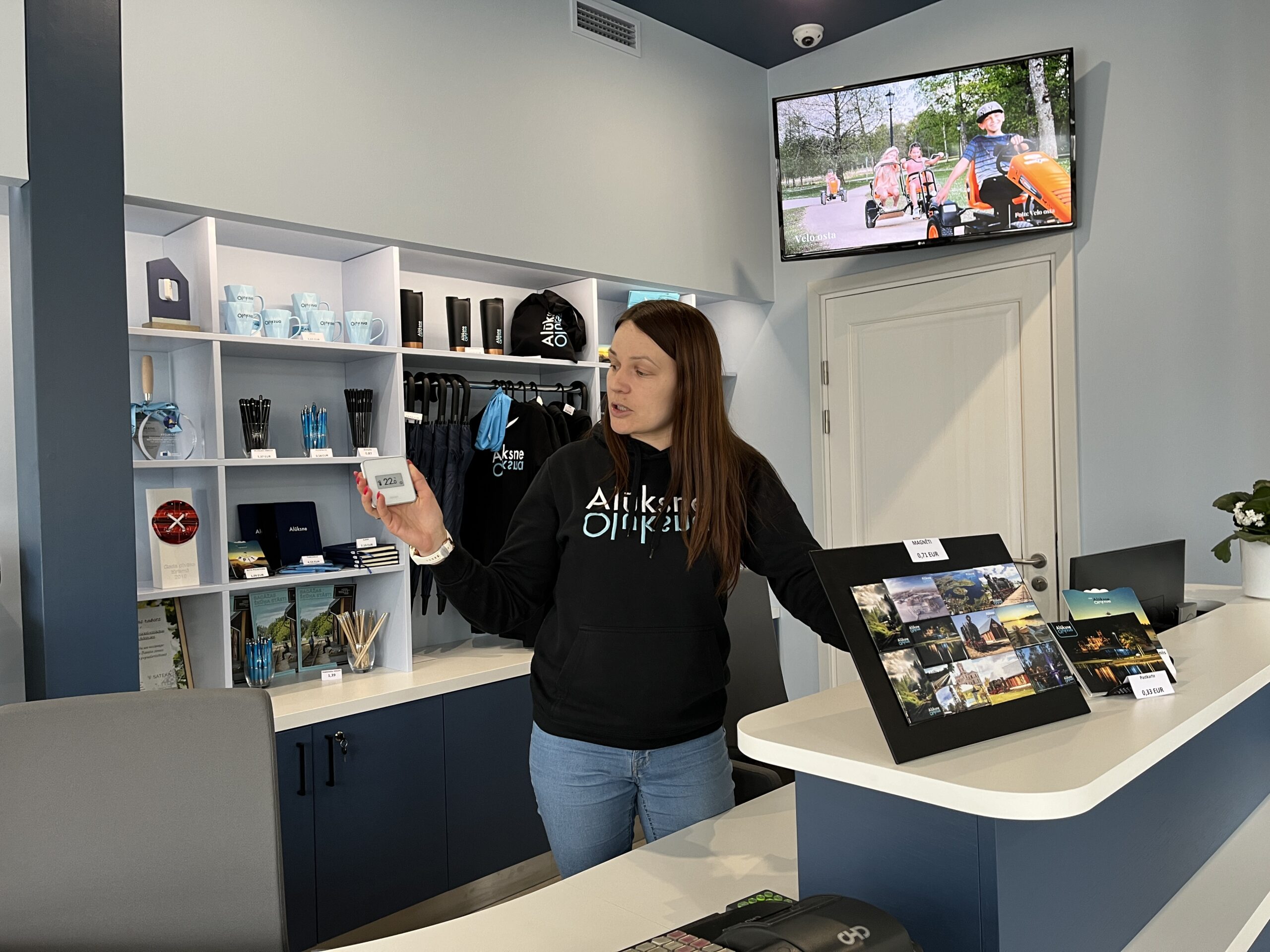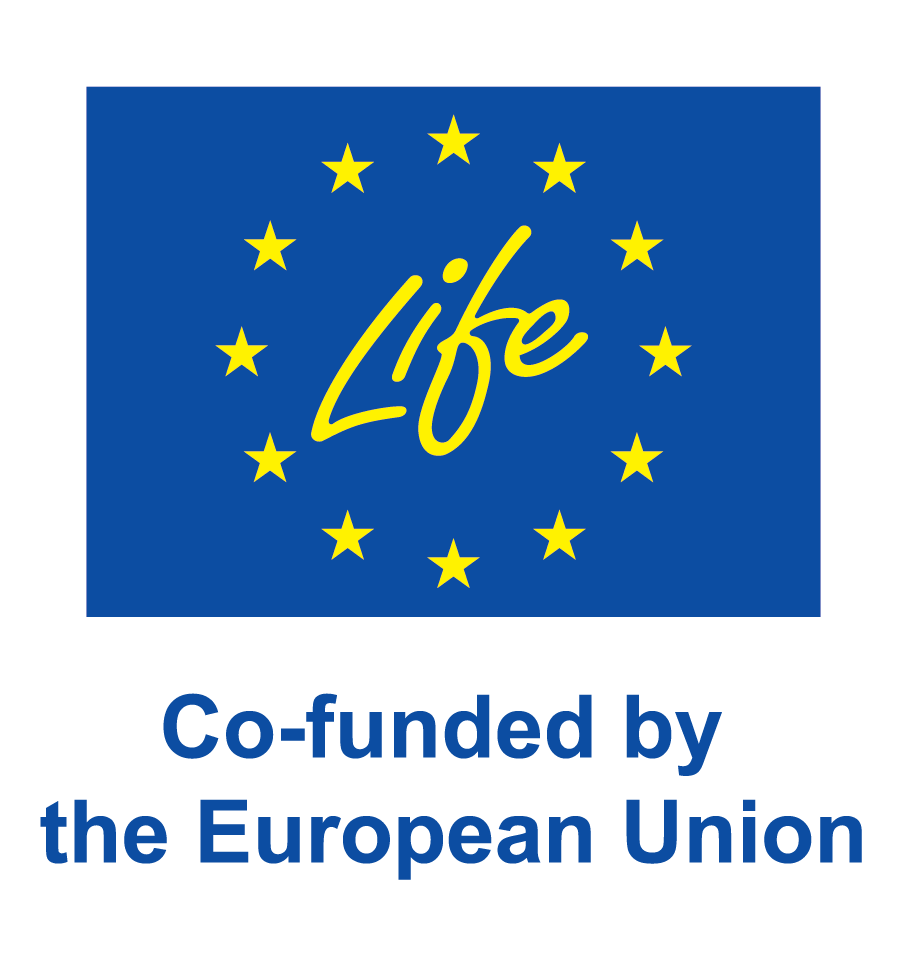“Energy efficiency of buildings is the main solution for reducing energy poverty,” this was the statement made at the workshop held on April 3rd in Alūksne city, Latvia, which the Vidzeme Planning Region organized within the framework of the CEESEU-DIGIT project.
Energy poverty is a significant problem in Europe. Its causes are found in the situation where energy costs in Europe are proportionally high compared to the population’s income, and the buildings are energy inefficient. Energy poverty should not always be associated with socially vulnerable groups or the poor. This is often a sign that you are paying too much for your energy service, and you also need to look at it from a comfort perspective. However, in Latvia, to determine whether a household is affected by energy poverty, a household’s income level and compliance with the status of a poor or low-income family are primarily assessed. In Europe, energy poverty indicators are looked at on a broader scale, assessing whether energy services are available in terms of price and whether it is possible to ensure adequate comfort in the home, not to endanger well-being and health. Inappropriate indoor temperatures can promote moisture and mold growth and lead to respiratory and heart diseases. Also, energy poverty can be attributed to external conditions that are difficult for the household to influence. For example, in multi-apartment buildings, where individual heating sources provide heat, the unoccupied apartments are often not heated during winter, so neighbors may have difficulties maintaining a suitable indoor temperature.
At the workshop in Alūksne, the Vidzeme Planning Region invited Selīna Vancāne, Ph.D. of Environmental Engineering of Riga Technical University, to tell more about the definition of energy poverty, legal framework, and solutions. Latvia has the most significant proportion of residents in Europe who live in multi-apartment buildings.
“The housing stock in Latvia is rapidly aging, characterized by the high energy consumption of the building and low thermal technical requirements. Energy poverty is formed by the poor condition of buildings in combination with low solvency. If we cannot improve the material well-being of each individual, then the energy efficiency of buildings should be improved,” emphasized S. Vancāne. Considering that Latvian residents are exposed mainly to the risk of energy poverty and face difficulties in covering monthly housing bills, increasing the energy efficiency of multi-apartment buildings is possible if the investment in the property does not cause additional financial difficulties in the daily costs of the residents. This means that additional funding for the housing benefit should be provided if, after renovation, the monthly payment has increased compared to the situation if the building had not been renovated.
To carry out targeted support measures, it is necessary to identify the general condition of buildings in Latvia. S. Vancāne emphasized that buildings with the lowest energy efficiency indicators should be renovated as a priority, creating a separate support program for this, as determined by the recommendations of the European Commission. Currently, there is no necessary data to make a complete assessment of the housing stock in Latvia. In some municipalities, it is possible to integrate data by combining it with information on heat energy consumption, but in most of them, such data is not collected. The availability of such public information would promote citizens’ understanding and involvement in the building renovation process and help citizens assess the property’s energy efficiency level when purchasing a new property. A low energy efficiency class should be classified as a hazard indicator. In addition, attention should also be paid to those residents who are not included in the circle of beneficiaries of social support but still have difficulties paying energy bills and renovating the building. One-stop agencies’ role in informing residents and providing advisory support on renovating multi-apartment buildings was also emphasized. Such an agency operates in Riga, where the Riga Energy Agency offers professional consultations and support for the renovation of apartment buildings. Currently, preparations are also being made in the Vidzeme region to create such a support point, which will be developed as part of the RenoWave project of the Interreg Baltic Sea Region program.
Within the framework of the CEESEU-DIGIT project, the Vidzeme Planning Region emphasized to local government specialists need to pay attention to measures to reduce energy poverty in their sustainable energy and climate plans. A helpful source of information for local governments can be the material prepared in 2021, EPAH Report: Tackling energy poverty through local actions ‒ Inspiring cases from across Europe. The material is available in Latvian: https://energy-poverty.ec.europa.eu/discover/publications/publications/epah-report-tackling-energy-poverty-through-local-actions-inspiring-cases-across-europe_en
In the second part of the seminar, Gulbene municipality specialist Krišjānis Upāns introduced the participants to the “Energy Equilibrium” platform, which was created to support municipalities and energy suppliers in decision-making, accelerate the use of local renewable energy resources and developing suitable energy accumulation infrastructures. More information: www.interreg-baltic.eu/project/energy-equilibrium-interreg-baltic-sea-region/
The workshop participants visited the Alūksnes Information and Service Center and the Alūksnes Business Station. Alūksnes Business Station was built to support entrepreneurship, and the building has become a home for four regional entrepreneurs. Both buildings were built in 2023, and energy-efficient solutions were implemented.
About the CEESEU-DIGIT project:
The CEESEU-DIGIT project is implemented within the framework of the European Union “Life” program. Its main goal is to develop and implement an energy and climate action plan in six regions of Central and Eastern European countries, including the Vidzeme planning region, as well as to improve the abilities of local governments to prepare, finance, and implement their energy and climate action plans in accordance with national and regional level energy planning documents. Read more about project activities in Latvia HERE.

